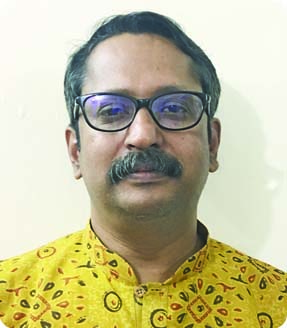Conspicuous presence of the West in Ethiopia

The 777/200 flight from Dubai to Addis Ababa was full. That was not what surprised me. I was more stunned by the fact that nearly 70% of those onboard did not even look African!
The women sitting beside me were Austrian and worked for Bill & Melinda Gates Foundation, the American private foundation which is now reported to be the largest private foundation in the world with over $50 billion in assets. They work globally to enhance healthcare and reduce extreme disease burden.
Not only her, I noticed that nearly half of the guests staying at Intercontinental Hotel Addis, where I had shacked up for this trip, were Europeans. Most of the other half was Chinese and some were Indians.
A large share of this variety were at the African country looking for business scopes and investment opportunities. Some of them work for international organisations.
With my interest piqued, I spent most of my mornings talking to the guests during the free breakfast buffet. Most of them were eyeing Ethiopia’s infrastructure - especially railways and roads - service industries like hospitals, and vocational education. The international community is heavily interested in investing in Ethiopia.
Africa, the mysterious land of natural beauty and abundant resources, was always a calling for profiteers. From the dark ages of slavery to modern day civilisation, most of it is based on the foundation built through the hard labour and immense sacrifice of Africans.
By entrenching the Africans through sparking
communal conflicts, branding them with
diseases like Aids and Ebola, the West
can justify their ‘peace missions’
Most of these representatives of the modern-day civilized societies, who have come to show piety to these ‘backward’ people, have forgotten that their development and civilization is founded on the blood and sweat of Africans.
The West, which had once made slaves of these open-hearted people, now have their eyes on the wealth of resources underneath the African land.
By entrenching the Africans through sparking communal conflicts, branding them with diseases like Aids and Ebola, the West can justify their ‘peace missions’.
The West can peacefully burp at the end of their meals content of having done their part by their direct interventions and through their ordinate organisations of doing their part in bringing peace to a land which had been peaceful before their own past interferences. Their own interferences in the land of Africa, most of whose residents are humane, giving and tolerant with little demand from life. No extra luxury like driving expensive cars, having exotic food or wearing designer clothes.
The only luxury they afford for themselves is denying to work after the stipulated eight hours and in the evening, gossiping and singing at the shanty stores over a couple of drinks. But the so-called international and aid organisations are slowly making these people lazy and dependent.
What I could glean from my conversations, with university teachers and other members of the society who are politically aware, is that the people who have always held their heads high, wanted to solve their problems by themselves.
But that is something that the international community did not and would not allow.
Coming back to where we are. After discussing with businesspersons who have aggregated in Ethiopia, one of the things that I could understand is that even with the government’s positivity regarding foreign investment, a number of remnants of the old communist rules, in the form of archaic laws and regulations, are hampering the process. There is lack of coordination between relevant ministries, departments and organisations.
For example, to invest, the investor has to take a license. A businessman has to detail on the whole supply chain to get the investment license but when he tries to import raw materials, the customs refuse. The commerce ministry, central bank and customs has a coordination gap.
There is also complications regarding visa along with lack of skilled labour and managers. If they want to bring in skilled labour or manager, there is a return-deadline of three years.
Ethiopia’s direct stance is, “Teach our men.” But investors are saying, “Who will I teach? If they had the interest! We could teach the labours, but how do we train managers and foremen so fast.”
These dilemmas are what had led to the low foreign reserves for Ethiopia. Over the last communist era, and after democracy’s arrival the reserves were slumped at under $1 billion until 2003. In the last 15 years, in spurts and falls, it had finally reached just $3.9 billion last July.
Among this scenario, the platforms of businesspersons are very weak in negotiating with the government! What I could learn from the chamber here is that already Chinese, Turkish and Indian investments have arrived. Bangladesh’s DBL is investing $100 million in the garments sector.
But due to legal complications, the investors are having to use their capital to pay bank installments while new investors are afraid to take the risk. In this situation, communal clashes have spiked over the upcoming elections. The political peace or stability that drew investors to Ethiopia, is the current instability turning it all around? The Ethiopia of Abbiy Ahmed will have to find a solution.
Naimuzzaman Mukta is Joint Editor, Bangladesh Post


